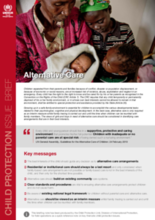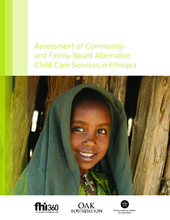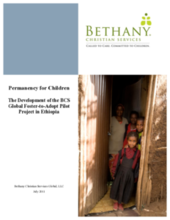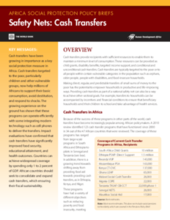childrens_living_arrangement
children_living_without_bio
Displaying 111 - 120 of 157
Comment les réseaux sociaux solides soutiennent les enfants d’Afrique subsaharienne et leurs familles. Les enfants et les familles vulnérables ont besoin d’un système de soutien social qui réponde aux problèmes qu’ils rencontrent grâce à des solutions efficaces et durables. Les observations présentées dans ce rapport sont un « cliché instantané » des pratiques prometteuses en matière de développement et de pérennité de la communauté.
This article uses data collected from adoptive parents’ postadoption and governmental data in Romania, Ukraine, India, Guatemala, and Ethiopia to focus on domestic adoption in each of these countries. The article highlights both promising practices in domestic adoption as well as policies and practices that require additional research.
This issue brief from the UNHCR highlights key messages from UNHCR in regards to alternative care, including the importance of making alternative care arrangements based on the best interests of the child and using residential or institutional care only as a very last resort.
This publication, produced by the Parenting in Africa Network (PAN), highlights the skillful parenting practices of several pastoral communities in Africa.
This assessment conducted by FHI 360, with support from Ethiopia's Ministry of Women, Youth and Children Affairs (MoWYCA) and the OAK Foundation aimed to generate evidence about formal community and family- based alternative child care services and service providing agencies in Ethiopia, with a particular focus on magnitude, quality and quality-assurance mechanisms.
This article shares the story of Hana, a 13 year-old girl who had been adopted from Ethiopia three years previously, died in the care of her adoptive family in Washington state, USA.
This report provides initial documentation of a pilot program launched by Bethany Christian Services in 2009 in Ethiopia. The pilot aims at moving children from institutional care to family-based care by developing alternative family care for non-relative children using a foster-to-adopt approach, working through a partnership between faith communities in Ethiopia and American faith congregations in the US.
Charts that accompany the article Orphan Fever: The Evangelical Movement’s Adoption Obsession, illustrating the trends in international adoptions from Liberia, Kyrgyzstan, Ethiopia, Uganda, and Haiti to families in the United States.
Using data from three rounds of the Young Lives longitudinal survey conducted in 2002, 2006, and 2009 in Ethiopia, this paper investigates whether the death of a parent during middle childhood has different effects on a child’s schooling and psychosocial outcomes when compared with death during adolescence.
This policy brief from the World Bank provides an overview of cash transfers in African countries.






